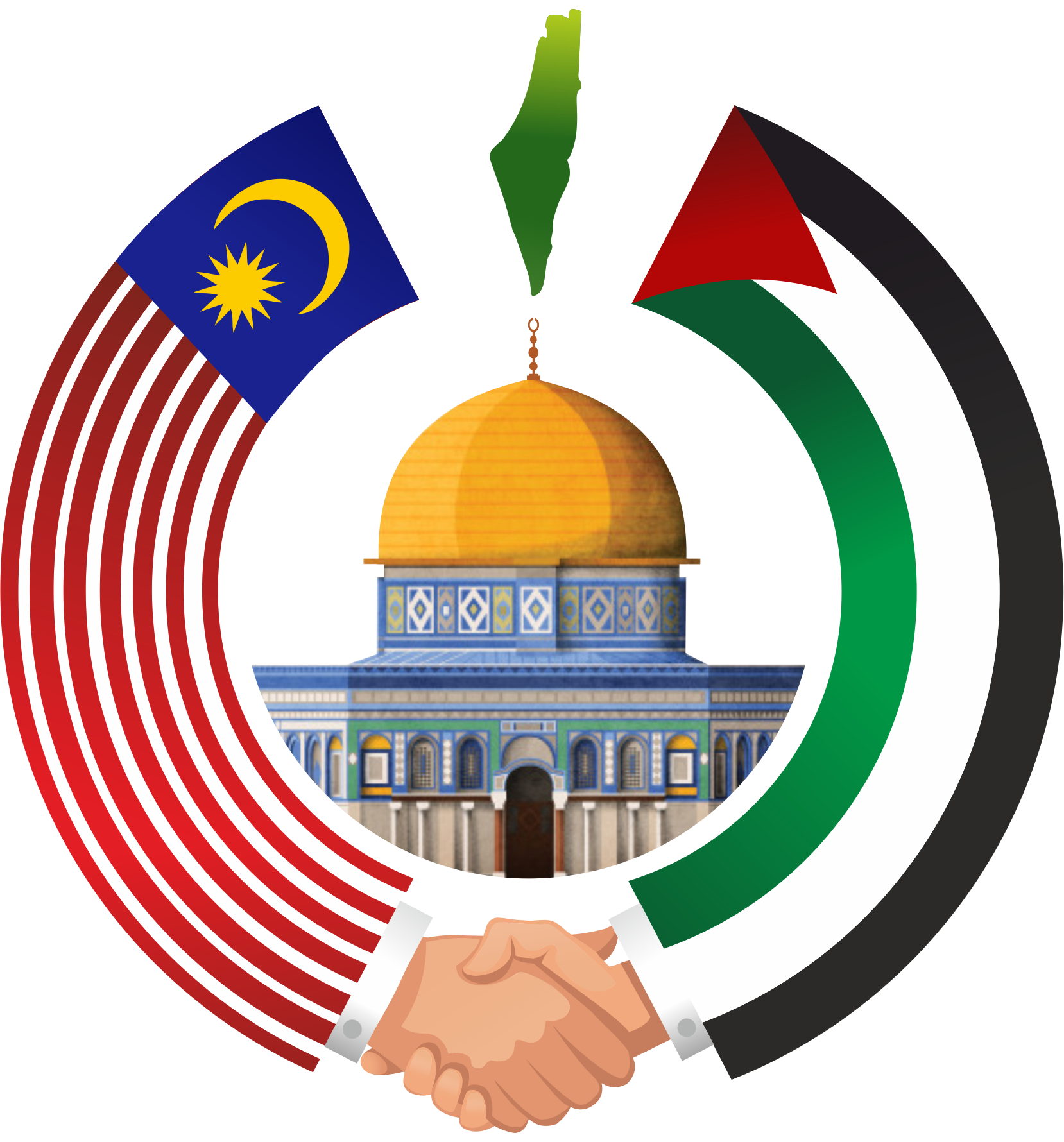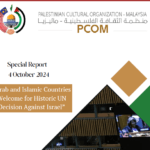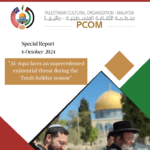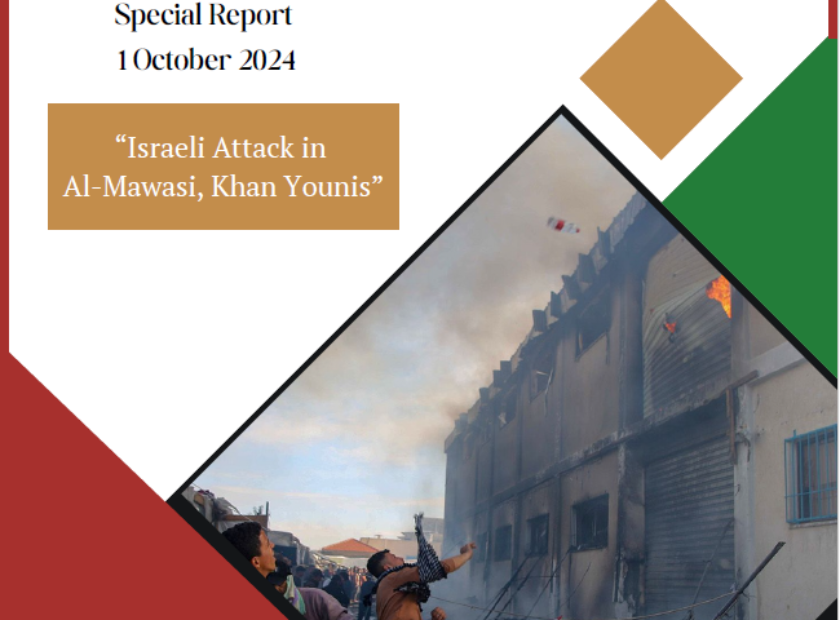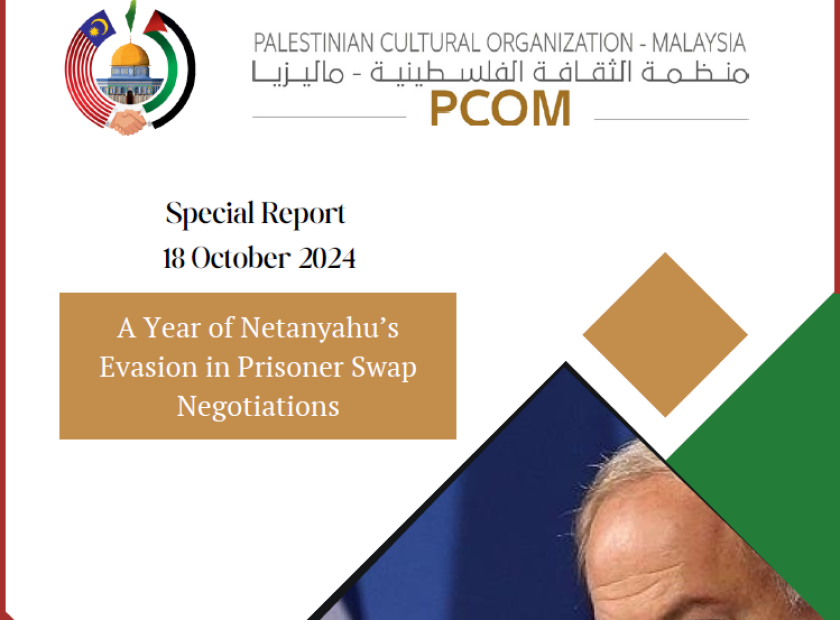Malaysia’s support for Palestine dates back to the early years of its independence. As a young nation emerging from the shadows of colonialism, Malaysia identified strongly with the struggles of other oppressed peoples. The Palestinian cause, representing the fight against occupation, displacement, and apartheid, resonated deeply with Malaysia’s own history of fighting for sovereignty. This shared experience of resisting foreign domination fostered a natural alliance between the two nations. In 1936, young Malaysian Burhanuddin Helmi visited the Levant and became a guest in Palestine, where the people were engaged in a struggle against Jewish immigration and British mandate. While Palestinian cities were in revolt against the mandate, Burhanuddin had the chance to participate in the Great Palestinian Revolt (1936–1939). He was arrested by the British for four months and then deported to Malaysia.
Shortly after returning to his country, Burhanuddin decided to fight in his own way. In 1937, he launched the magazine Taman Bahagia and began mobilizing against British colonialism, exposing their plans to establish a national homeland for Jews on Palestinian land, and introducing himself as a “fighter for Palestine.” The British, who were still ruling Malaysia at the time, arrested him again and shut down the magazine.
Politically, Malaysia refused to recognize the Israeli occupation when its state was declared and has since adopted the term “Nakba. ” Tunku Abdul Rahman, the first Prime Minister of the Federation of Malaya in 1955 and the first Prime Minister of independent Malaysia (1957–1970), adhered to this stance. He bolstered international efforts in support of the Palestinian cause through the Non-Aligned Movement and his rounds at the United Nations, particularly his position following the burning of Al Aqsa Mosque in 1969. He raised the issue of Jerusalem, called for international and UN protection for the city and its residents, and demanded a global response to the actions of the Israeli occupation.
In this article, we explore some aspects of both governmental and popular Malaysian support and solidarity with the Palestinian cause, especially after the “Al-Aqsa Flood” operation.
Support in Multiple Directions
Faraj Hanini, President of the Palestinian Students Association (PSA), states, “Malaysia, with its government and people, always stands with Palestine, whether in justice or oppression.” This support spans from hosting around 4,000–5,000 Palestinians, including students and refugees, to mobilizing governmental, humanitarian, educational, and religious institutions, as well as mosques, to strengthen solidarity with Palestine. It also extends to collaboration with the Palestinian community in every government or popular activity, such as festivals, conferences, or marches.
According to Hanini, this has transformed the presence of Palestinians in Malaysia and their roles in forming academic, social, and humanitarian bonds with the broader Malaysian public.
It has become an opportunity to maintain and enhance both governmental and popular support for Palestine. This is particularly evident in Malaysia’s warm reception of Palestinians, who are invited to participate in religious gatherings, Qur’an memorization sessions, student exchanges with Palestinian universities, and the annual exchange of imams during Ramadan. Additionally, Malaysian medical delegations frequently offer support to hospitals, medical centers, and clinics during every Israeli assault by providing expertise and medical supplies.
Dato’ Seri Professor Kamal Nasiruddin bin Mustafa, President of My CARE, highlights the close relationship between the Malaysian and Palestinian people, stating that the events of October 7 were not a turning point but rather a continuation and strengthening of prior efforts. These efforts include emergency relief programs, education support, food security aid, and the construction of hospitals and schools. My CARE has been consistently providing educational scholarships both in Malaysia and Palestine, as well as supporting Qur’an memorization programs and sponsoring students of the Holy Qur’an.
Moreover, My CARE’s humanitarian and relief partnerships with several Palestinian organizations in Malaysia—such as the Palestinian Cultural Organization Malaysia (PCOM), the International Coalition for Jerusalem and Palestine, and institutions of the Palestinian Liberation Organization—have led to the implementation of various projects in cooperation with these organizations and other relief agencies in affected areas. This collaboration earned My CARE the leadership of the Southeast Asia Humanitarian Committee starting in 2019.
On the Nature of Malaysian Popular Support for Palestinians in Recent Years
Norma Hashim, the founding director of the Hashim Sani Center for Palestinian Studies and treasurer of Viva Palestina Malaysia, points out that Malaysian efforts have become more focused over the past 16 years. These efforts have adopted a methodology aimed at improving the economic and living standards of Palestinians, especially given the Israeli siege on the Gaza Strip and the dwindling economic opportunities. Consequently, the initiatives have been directed towards supporting university students in both Palestine and Malaysia to complete their studies, providing small credit loans for business ventures, and supplying balanced food baskets.
“Survival” Instead of “Economic Recovery”
The Malaysian political and popular movement in support of the Palestinian cause continued following the launch of the Al-Aqsa Flood operation. The Malaysian leadership made a decision to stand with the rights of the Palestinian people, despite Western countries and some Arab states condemning the events of October 7. Malaysia rejected any external pressure, which gave the public a comfortable space to mobilize both inside and outside Malaysia to support Palestinians.
Jasmi Johari, head of the Malaysian Humanitarian Aid and Relief Agency (MAHAR), explained these developments: “One month after the war on Gaza began, the Malaysian government launched the Operation Ihsan initiative. This initiative represented a collaboration between the Ministry of Foreign Affairs, NGOs, companies, and individuals to unite their efforts in helping Palestine. Today, more than 100 active entities are involved, securing hundreds of tons of essential and medical supplies from the Malaysian people for the Palestinians in the early stages.”
On the other hand, Norma Hashim believes that the current war on Gaza has radically shifted the priorities of humanitarian organizations, transforming their objectives from “economic recovery” to “survival.” This shift has meant a change in the type and nature of aid, focusing solely on providing meals, securing drinking water, clean clothes, essential food, and medical supplies, as well as establishing temporary clinics to treat the wounded, given the destruction or overcrowding of hospitals.
Despite the importance of this type of aid, Jasmi Johari, Head of Operations for Ihsan, believes that the main obstacle to Malaysian support is not political or economic pressure but rather the geographical distance. This distance makes every aid operation very costly and fraught with the risk of failure, due to food spoilage or the expiration of medical supplies, particularly with the closure of the Rafah crossing. As a result, humanitarian workers have resorted to preparing aid in nearby countries. For example, Ihsan prepared 60,000 food baskets in Cairo and sent them to Gaza.
Wounded of the War on Malaysian Soil
The latest step in Malaysian efforts was the transfer of 41 wounded Palestinians from Egypt to Malaysian hospitals for medical care, accompanied by 86 of their relatives, including 19 children under the age of 12. The ages of the wounded range from eight months to 62 years. In an interview with “Metras,” Abdullah Bashir Abdul Rabbo, one of the injured Palestinians transferred to Malaysia, spoke about his treatment journey. He and his mother were selected based on their ability to endure a 19-hour long flight. Abdullah suffers from the amputation of his right foot, severed tendons in his right forearm, stiffness in his left-hand fingers, and blocked tendons. His mother suffers from heart disease, high blood pressure, and fluid in her lungs. Abdullah was injured when Israeli forces bombed the Halima Al-Sa’diya School in Jabalia, northern Gaza. He is currently preparing for physiotherapy sessions in Malaysian centers, with the aim of receiving prosthetic limbs in the future. Abdullah highlighted the warm reception from the Malaysian authorities, particularly their approval for them to travel using only personal identification cards, along with the medical care and welcoming attitude from various organizations.
“Let Him Go and Become the Prime Minister of Palestine”
Despite widespread agreement among Malaysian society to support the Palestinian people, the government’s decision to receive wounded Palestinians faced various criticisms and incitement campaigns. Some attacked the Prime Minister, saying, “Let him go and become the Prime Minister of Palestine.” The government was accused of neglecting its own people in favor of bringing in Palestinian wounded. Humanitarian organizations were also criticized for allegedly prioritizing medical treatment for Palestinians over Malaysians, and media outlets spread inciting material against Palestinians, portraying their presence in Malaysia as entangling the country in an unnecessary conflict.
In response to this campaign, Wong Chun Wai, Chairman of the Board of the Malaysian National News Agency, argued in an article that “receiving 41 wounded out of 77,000 injured due to genocide makes the criticism illogical.” Malaysia is not the only country providing medical assistance to Palestinians; Egypt, Jordan, and Turkey have also done the same. He added that Malaysia has historically welcomed refugees, including 250,000 Vietnamese refugees, as well as Syrians and Bosnians during their respective crises.
In response to accusations of neglecting local needs, Wong pointed to the allocation of 41.2 billion Malaysian Ringgit (approximately 96.94 billion US dollars) in the 2024 budget, a 13% increase from the previous year. Additionally, Malaysia saw a 4.9% rise in average wages, and the Ringgit recorded the best performance in Asia.
Faraj Hanini, President of the Palestinian Students Association, viewed the criticism as a sign of the failure of external pressures to divert Malaysian policy away from the Palestinian cause. He remarked that playing on the “race and minority” card is a sensitive issue in Malaysian society, which strives to close any gaps in this area and unite to strengthen its regional and international standing. Hanini noted that the occupation and its allies “do not play openly,” so it’s very likely that recent criticisms were driven by external parties. However, he dismissed the idea that these criticisms would impact Malaysian activism in supporting Palestine or dampen its enthusiasm. He did suggest, however, that such criticisms might lead to a “reassessment” of this support, possibly followed by a campaign to highlight the government’s domestic achievements alongside its international efforts, or by expanding public support to better reflect Malaysia’s ethnic diversity.
In conclusion, Malaysia’s political system has historically based its support for Palestine on three key principles: first, Islam, which unites the Malay people with the Palestinians; second, the shared experience of British colonialism, which imposed similar forms of oppression on both Malaya and Palestine; and third, Malaysia’s connection with Arab and Islamic countries after gaining independence, along with its partnership in several international organizations such as the Non Aligned Movement and the Organization of Islamic Cooperation (OIC).
During the “Liberate Palestine” festival, organized in partnership between the government and various organizations to condemn the assassination of Hamas political leader Ismail Haniyeh, Minister Seri Johari recalled his last meeting with Haniyeh in Tehran. At that meeting, Haniyeh asked him about Malaysian Prime Minister Anwar Ibrahim and said, “Return to Anwar and tell him to continue his noble struggle.” Following that, Ibrahim pledged that he “will not give up,” swearing with more than 20,000 Malaysians participating in the event that they would continue to support and advocate for Palestine until it achieves freedom and victory.
Source: Sujoud Awais, Metras Website & Agencies

